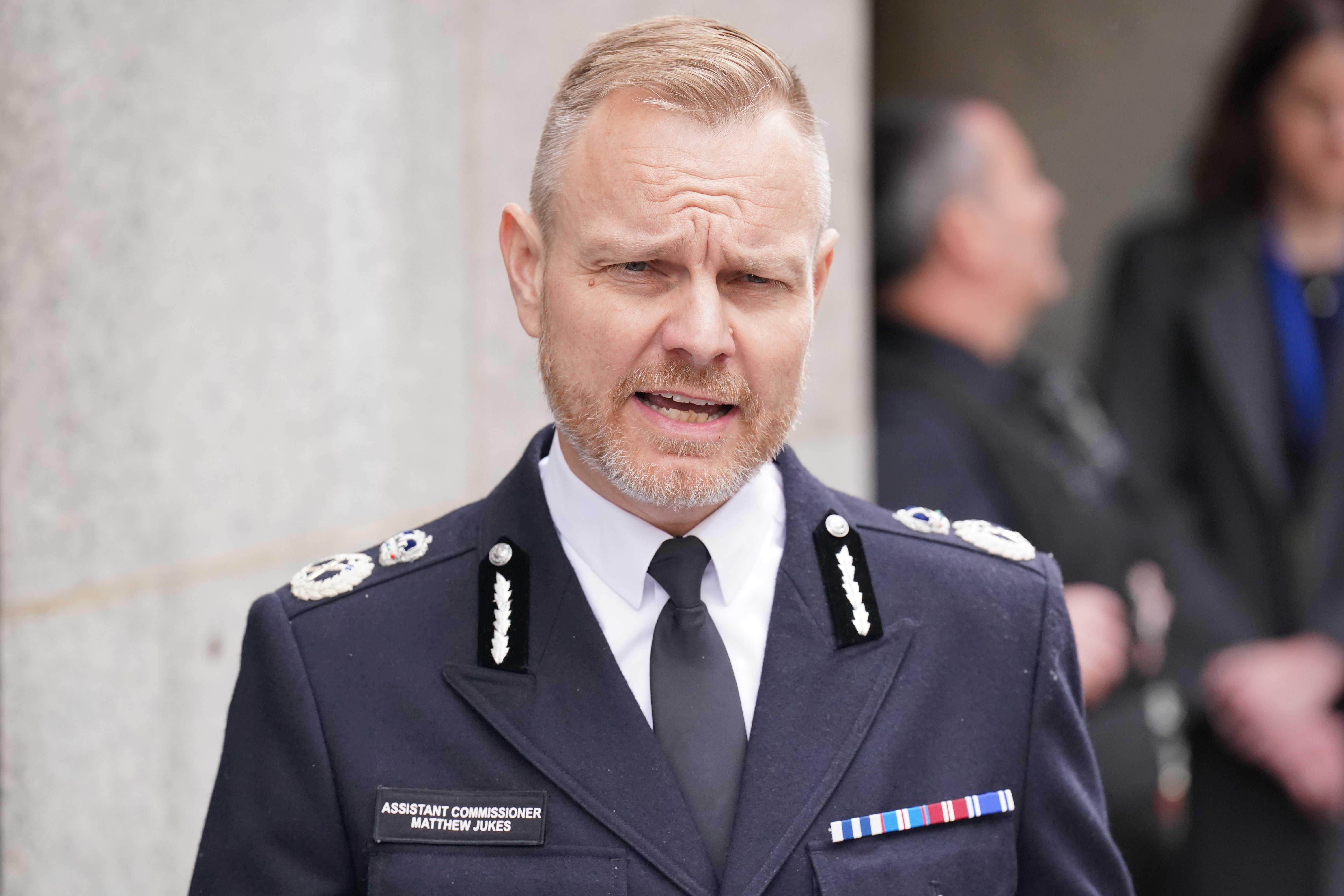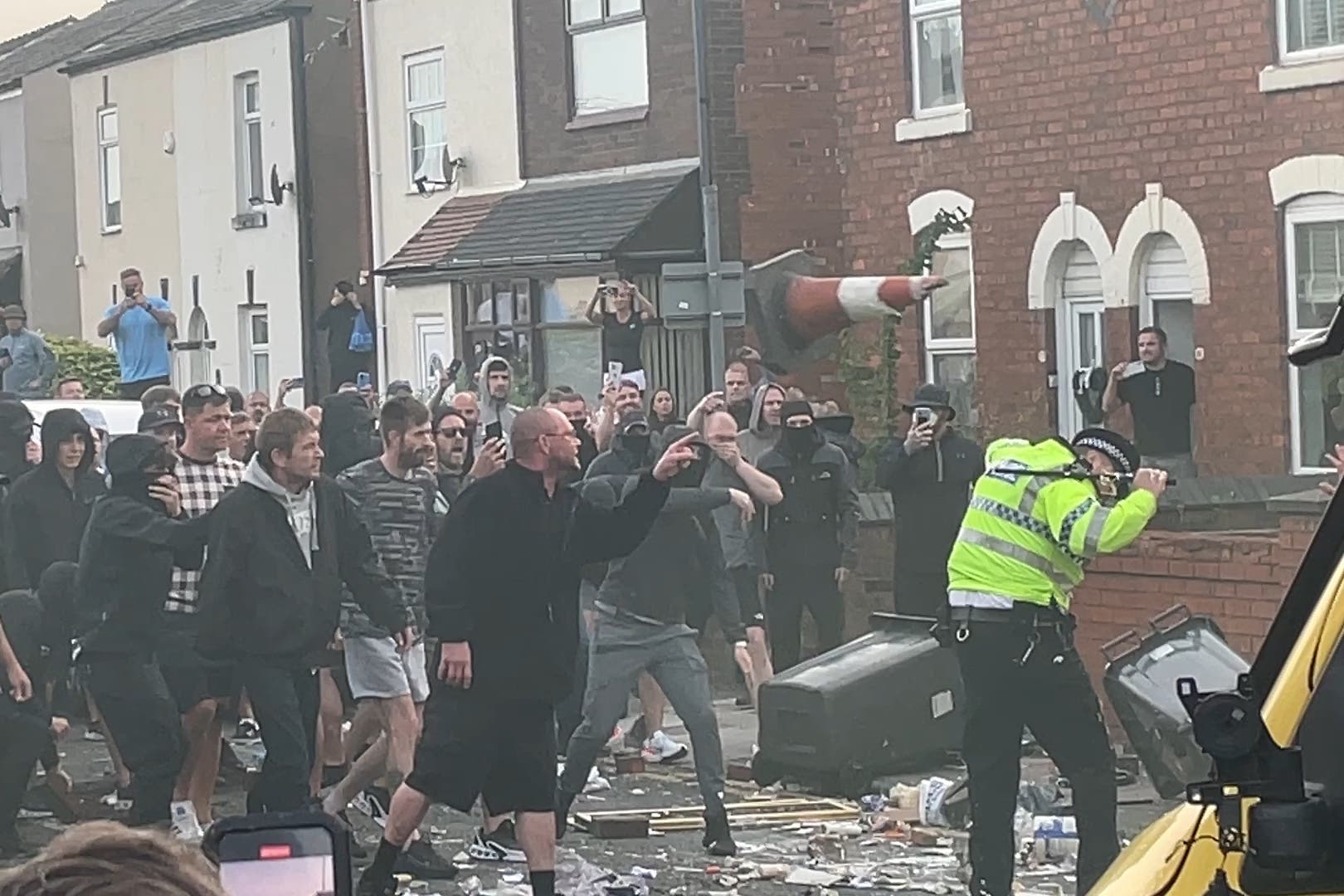
Policing this summer’s riots cost forces £31.7million and foreign bots “turbo-charged” the spread of misinformation which fuelled the unrest, the UK’s counter-terrorism police chief has revealed.
False information about the identity of the alleged Southport attacker received 27 million impressions on X, formerly Twitter, in the first day after the mass stabbing of children at a Taylor-Swift themed dance class.
Matt Jukes, the head of UK Counter Terrorism policing, said this misinformation was amplified by foreign bots from states, including Russia.
Speaking to journalists at a policing summit in Westminster on Wednesday, Mr Jukes said: “The vast majority of that messaging, which was problematic online, was domestic, driven by people who lived in our communities, who were stoking fear in those communities.
“But we have seen that turbo-charged by bots online. And so as we were tracking the amount of traffic, hateful traffic, during the 24-hour period across the days, we would see tremendous spikes as around midnight, bots kicked in.
“And we would just see that the amplification, automation of that reach of those messages which were at times hateful, at times misinformation.”

He also hit out at “unhelpful” domestic commentators who know that police cannot release certain information during ongoing court proceedings but hint at “cover up and conspiracy”.
Reform UK leader Nigel Farage is among those who have claimed there has been a cover-up over the Southport murders.
“We do need responsible commentators,” Mr Jukes said. “It is unhelpful when people who I suspect fully well know what the constraints are on reporting during ongoing legal proceedings, point to limited disclosures or limits on what can be said as evidence of cover up and conspiracy.”
Nine in ten rioters were male and almost half were aged 18 to 35 years old, according to new figures on the unrest from the National Police Chiefs’ Council. Some 17 per cent of those who took part were under 18.
A total of 1590 people have been arrested so far over the disorder, but these numbers will continue to grow as “many active inquiries” continue to identify all those responsible.
The total cost has already reached £31.7 million, but this is expected to rise. Over the 12 day period of rioting public order officers worked over 40,000 hours’ worth of shifts.
A small percentage of the arrests linked to the disorder were for online offences, while the rest were for disorder or violence in real life.
Mr Jukes went on: “There’s a legend which has emerged that the thought police were out arresting hundreds and hundreds of people for having opinions.

“And the reality is the hundreds and hundreds of people who were arrested were arrested because of their suspected involvement in violence, criminal damage, direct harms in communities.”
He also called on social media platforms to take responsibility for misinformation.
“One of the driving groups in relation to disorder during the summer was 10,000 plus people on Telegram, a company which has got, I believe, 900 million users, and have only recently got in the region of 100 staff,” Mr Jukes said.
“So there is a need for responsible investment by governments in law enforcement, by governments in regulators, and by people who make billions out of the information environment.”
Matt Storey, PCC for Cleveland, which saw significant disorder in Hartlepool and Middlesborough, said the violence was “predominantly motivated by hate and racism”.
He plans to visit rioters in prison to carry out a program of restorative justice, but said a number of offenders “had really good jobs, really settled lifestyles, middle class and have lost everything because they basically got drawn into it”.







